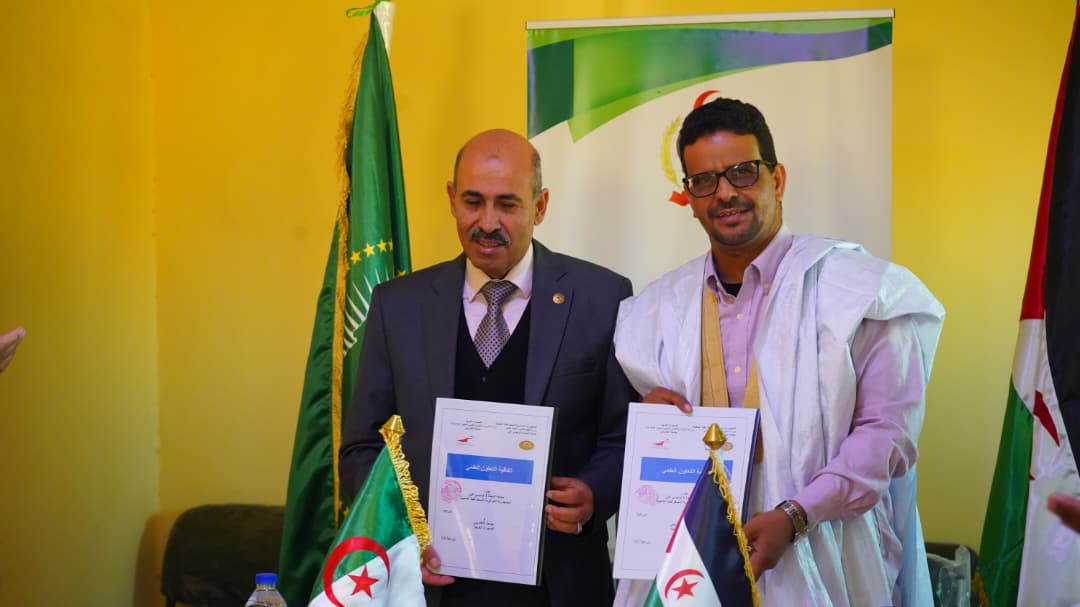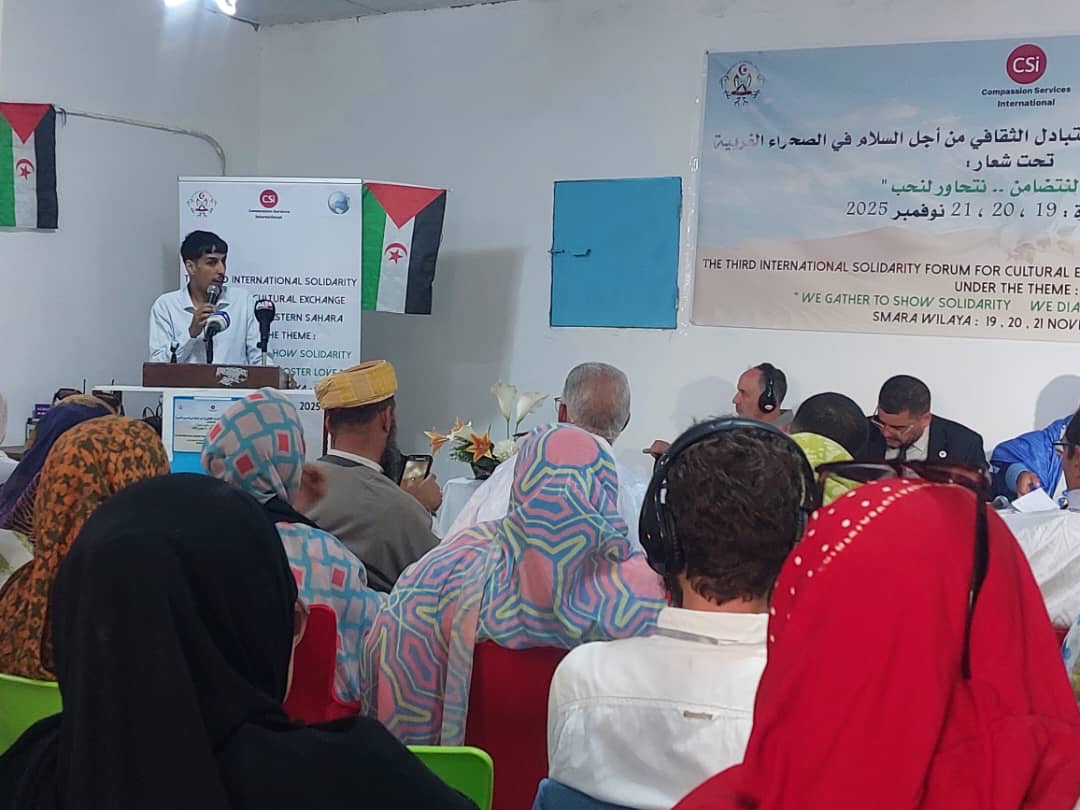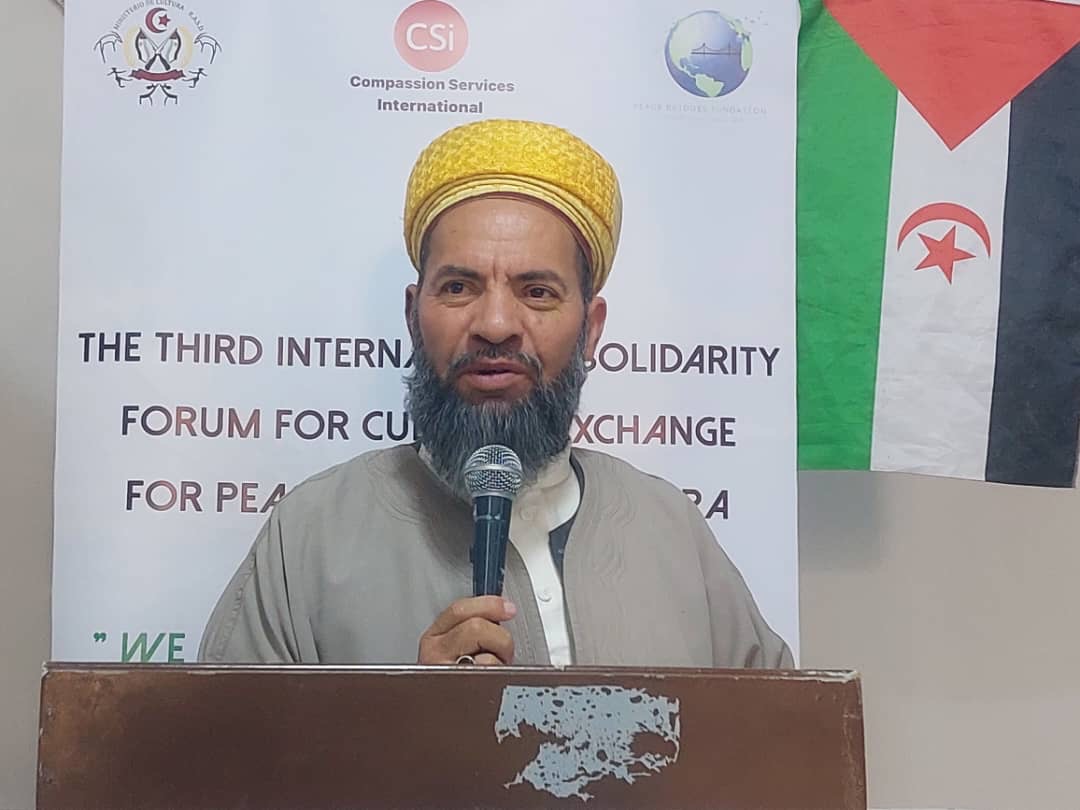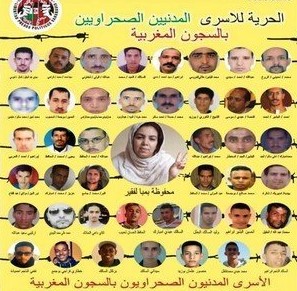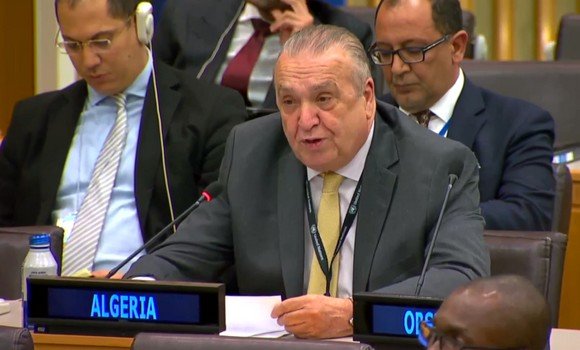
New York, 14 June 2024 (SPS) - Algeria’s Permanent Representative to the United Nations in New York, Amar Bendjama, emphatically reiterated the fundamentals of Algeria’s unwavering position on decolonization and the Sahrawi people’s right to self-determination and independence.
“Our foreign policy is based on cardinal principles, including the right to self-determination that we claim for colonized peoples on this planet, a principle we will never renounce,” affirmed the ambassador Bendjama in the woks of the UN Special Committee on Decolonization (C-24), held Tuesday in New York.
“The C-24 holds special significance for us, a nation that endured the scourge of colonialism and now stands independent and proud within this esteemed assembly room," said the Ambassador Bendjama in his address, adding "We come from all corners of the world, gradually attaining independence, at times through unrelenting struggles for self-determination and liberty."
In this regard, he said that this process "unfortunately remains incomplete and, today, Western Sahara constitutes the largest colonized territory and the last colony in Africa."
Noting that upon the former colonizer's departure, Western Sahara was invaded and placed under military occupation by its two neighboring countries, Morocco and Mauritania, which illicitly and shamelessly partitioned the territory between themselves, and while pointing out that three years later, following Mauritania's withdrawal, Morocco occupied the other part of the territory, the ambassador Bendjama raised two questions.
His first question was, "If Morocco truly possessed inalienable historical rights over this territory, a notion refuted by the International Court of Justice (ICJ), then why did it accept to share and carve it up with Mauritania?"
He then posed his second question: "If Morocco is convinced that the Sahrawis reside in a paradise in Western Sahara, why does it oppose the United Nations consulting the Sahrawi population through a referendum? And in exchange, does it grant a plan for autonomy under its sovereignty?"
Ambassador Bendjama devoted the concluding part of his address to a meticulous, systematic recapitulation of the fundamentals of the Western Sahara issue.
Accordingly, he underlined that the legal status of Western Sahara has long been unambiguously determined by the United Nations, with both the General Assembly and Security Council recognizing it as a territory distinct and separate from Morocco, while all UN resolutions uphold the legitimate and inalienable right of Western Sahara’s people to self-determination.
He underscored that this was confirmed by the International Court of Justice (ICJ) itself, which underlines "the application of the resolution to Western Sahara, especially the principle of self-determination rooted in the free and authentic expression of the will of the territory's people, through a free and fair self-determination referendum."
Bendjama then recalled an incontrovertible historical truth, emphasizing that "under the pressure of the international community, the late His Majesty King Hassan II, may his soul rest in peace, conceded right here that Morocco solemnly committed to abiding by the results of this referendum."

